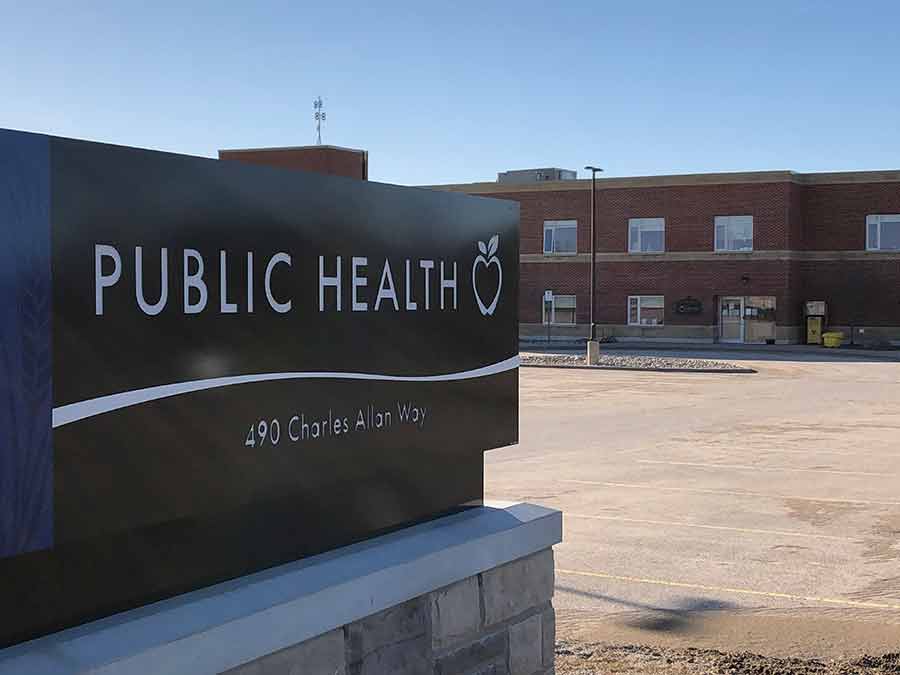WELLINGTON COUNTY – The region’s top doctor is predicting the local peak of COVID-19 cases will occur in mid to late April.
“We are about two to three weeks out from the peak of the cases that we are going to see locally,” Dr. Nicola Mercer, medical officer of health and CEO of Wellington-Dufferin-Guelph Public Health (WDGPH), stated on March 31.
Mercer provided an update on the pandemic to Wellington County council during a special teleconference meeting.
“Every area of the province will be a little bit different,” Mercer explained. “Some of them will peak earlier. You might anticipate that larger urban centres will actually hit their peaks slightly ahead of the County of Wellington just based on population density.
“But the county itself will also continue to see cases based on the fact that this virus is very infectious and it’s pretty easy to get because all it takes is for you to touch a surface and then touch your mouth.”
She added, “So the importance of keeping our hands clean is why we are really encouraging people to either stay home or work from home … and to really be careful when you go out in public to socially distance.”
As of March 31, there were five confirmed cases of COVID-19 in Wellington County – and 26 across the region.
Mercer said the next two weeks are going to be “really telling in terms of the impact all of the social measures we have put in place is going to have on the number of cases.”
She added, “Everything we have done as a society: closing schools, universities, day cares; encouraging people to work from home and now stay home and limits of no more than five people for congregate settings … these are all things that are going to show up down the road in terms of flattening that curve and insuring we have the least amount of people getting sick and impacting our hospitals at one time.”
Mercer said WDGPH began focusing on the COVID-19 threat ahead of most other public agencies.
“Public health is, and has been, completely dedicated to the COVID-19 response since the end of January,” she noted.
“Initially the job of public health was to work with our community partners to raise their awareness, our hospitals for example, to ensure that they were beginning to plan and prepare for what was coming.
“When I think back to the beginning of February as I was trying to get people to come to meetings and to pay attention to this, it was a little bit more difficult than it is now. People really didn’t understand what was going to happen. Of course that changed dramatically by the beginning of March.”
Mercer said WDGPH had about 50 people working phones in February trying to provide information to the public.
“And that was at a time when we didn’t have cases in our community. We were trying to get our community ready for cases.”
Now that cases have been found locally, Mercer said the agency has transitioned into response mode.
“We’re actually doing what we call case and contact management,” she said.
“So every time there is a positive case, public health’s job is to find them and ensure they are isolating, if there are any contacts for that case to ensure they are also isolating,” and ensure all the data is processed.
“We’re working with all our hospital partners and other institutions that are currently struggling and having outbreaks … to make sure they are doing all the right things that they can do to prevent outbreaks in their institutions and get ready for the next wave,” said Mercer.
She noted that following what might appear to be a “slow start” compared to some jurisdictions, “we currently, across Ontario, do actually now have a significant number of people in ICUs with COVID-19.”
For up-to-date local health information regarding COVID-19, visit the public health website.
For the latest local news on COVID-19 click here or follow the Advertiser on Twitter, @wellyadvertiser.




